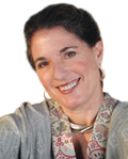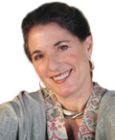
It’s so hard to be a good human being!
It is the little things, the human relations of everyday life that are hardest to transform. The moments of arrogance, of envy, of inadvertently hurting someone else.
And what in the world does forgiveness mean? The sages tell us that “forgiveness is not wishing for a better past”, and forgiveness is not forgetting. But what if you don’t want to forgive? Is saying that you do forgive being inauthentic? Another sin?
Tricky business. Lots of questions, discussions, words..
I entered the week-end with a heavy heart, and many questions about how to approach a situation. Then….
The Davening starts. The mounting crescendo of prayers and urgency. The repetition of phrases and melodies, call and response. The mood is heightened by fasting, as the purification begins. The rabbis wear all white—the Kittel—literally the burial shroud in which they will be buried.
The symbolic death and rebirth continues through the long, draining hours of the afternoon. Until the evening service, heightened by the uncanny shriek of the shofar, the ram’s horn.
I think of sitting in Tibetan rituals with fierce images of skullcups of blood and swords that cut through ego, and am reminded that cutting through the everyday ego of pride and stubbornness needs strong medicine!
And so the Yom Kippur ritual is such strong medicine. In one mounting chorus of voices, it offers confessions for individual, family and tribal sins. We are all interconnected. We take our turns standing in front of the Torah, as Aaron may have stood in front of the Holy of Holies. We wrap our white tallit around us to focus our attention on that moment of encounter. The shofar blows again, and the hair on the back of my neck stands up.
As night falls, the candles are lit to bless wine and bread, signaling the end of the service. We greet each other with radiant joy: “May you be sealed in the Book of Life:” G’mar Hatimah Tova!
I feel re-energized, freer, abundant, loving. I am lifted up, as though I am standing on a glowing cloud and looking down on the hassles of everyday life, choosing to stay there, choosing life and renewal over death and stagnation, choosing to stay with a balanced perspective on life.
This is the time to greet friends for communal break-the-fasts at each others’ homes. This was, in ancient days, the time for young maidens and men to go out into the fields to dance and become bethrothed.
When I got home, the situation had been resolved through Teshuvah, or the act of rebalancing a situation that was out of balance, or returning to the home of the soul. My heavy heart became joyful again.
Ilene Serlin is a Bay Area clinical psychologist and member of Congregation Kol Shofar

